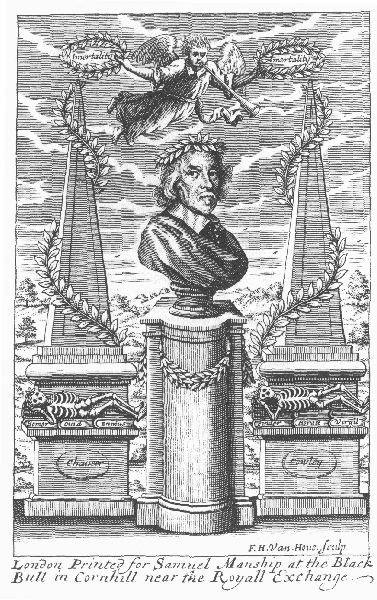Poetry is the Imitation of Life
 |
| “Title page of William Winstanley’s Lives of the most Famous English Poets from 1687″ |
Poets are the unacknowledged legislators of the world. Percy Bysshe Shelley wrote that in his A Defence of Poetry. But what is poetry? And why do most people I know hate it? Or tune out when poetry is discussed? Why do people have no problem reading novels, but would never dream of picking up a book of poetry?
Re-imagining what poetry is would be a healthy step for society. A poet has little to do with the people who pen short, page-long riddles that leave everybody scratching their heads. Natasha Sajé starts at the very beginning:
The Greek word poesis referred to all imaginative literature, whether prose or verse…. In the Poetics, Aristotle defines poesis as imitation of life and distinguishes it from history: “Poesis deals with general truths, history with specific events” (Writer’s Chronicle, March/April 2012, 36).
To be a poet is to imitate life. To imagine life and humanity and all that is. Sajé quotes a powerful passage from an Atlantic Monthly article in a March 1923 edition:
Poetry is an art practiced with the terribly plastic material of human language… Poetry is a puppet-show, where riders of skyrockets and divers of sea fathoms gossip about the sixth sense and the fourth dimension… Poetry is the journal of a sea animal living on the land, wanting to fly in the air… Poetry is in search for syllables to shoot at the barriers of the unknown and the unknowable… Poetry is the cipher key to the five mystic wishes packed in a hollow silver bullet fed to a flying fish…. Poetry is a fresh morning spider web telling a story of moonlit hours, of weaving and waiting during the night… Poetry is a pack-sack of invisible keepsakes…. Poetry is the capture of a picture, a song, or a flair, in a deliberate prism of words.
Poetry, I imagine, is any kind of art form to break us out of the daily motions of living. Poetry heightens our awareness, and opens our minds to the million tiny details that might have fallen through the cracks (of consciousness) in any given hour of the day. Poetry is our attention to detail, and a flexing of the very most important element we have as humans: our imaginations. Our creativity. We don’t need television to entertain ourselves.
Prose or verse, it might be our duty on this earth to refine our imaginations, and in many cases, dust them off. Capture any one of life’s infinite life processes. We don’t need drugs when we have superconsciousness to work with. We need more poets, and less entrepreneurs and salesmen and insurance plans and marketers and advertisers and bureaucratic offices and boards of education.
It is the latter group that dish out unrealistic, stringent models based on nonsense for interpreting the world. The bureaucratic mindset breaks life into multiple processes, which fragments our way of life. The ‘poet’ sees the world in a holistic manner by re-creating an image, an idea, a detail in collusion with every other. It is advertising and marketing and boards of men and women with their typed policy sheets that hinder humanity’s progress through mediocrity. Every natural or unnatural life process must be melded into a particular shape, and then clumsily fitted into their small mental boxes, or phrases, or policies drafted decades ago.
We need poets to burrow into the depths of the human spirit, to brave the muck, to continuously translate for us a world that is ever in flux, and to draw out the deeper truths and lay them bare in the scrutinizing light.




There are no comments at the moment, do you want to add one?
Write a comment